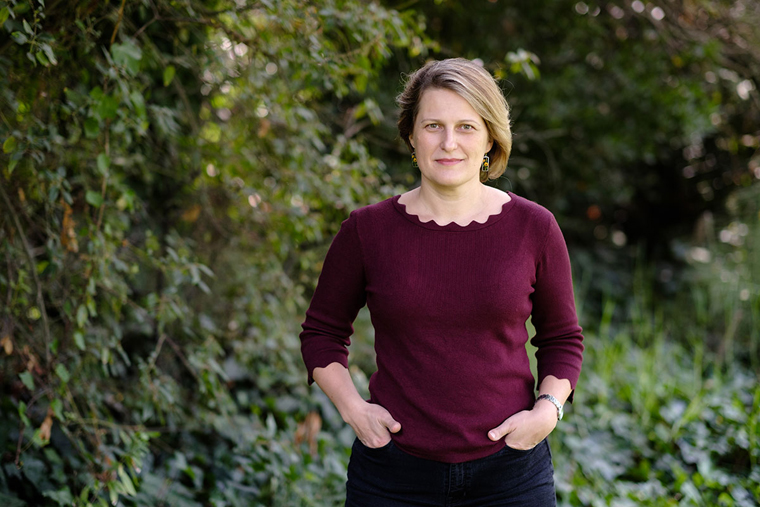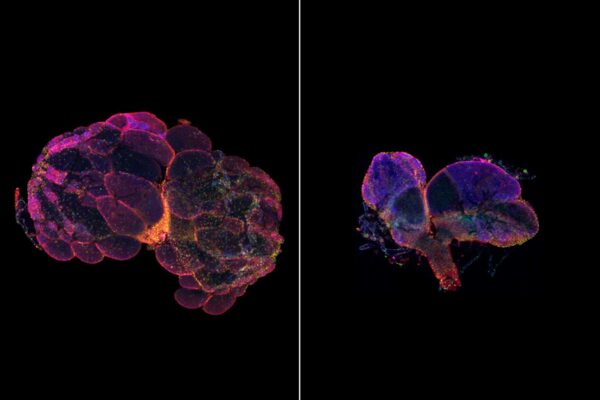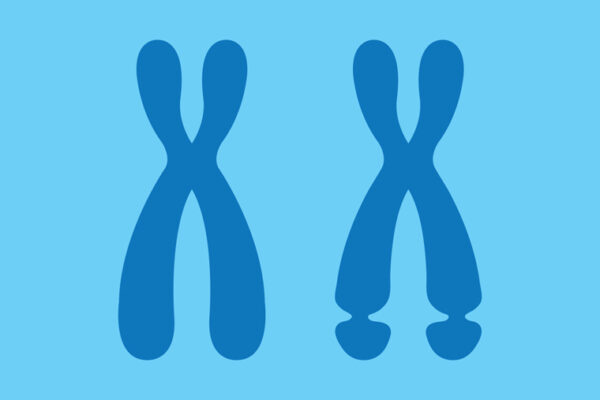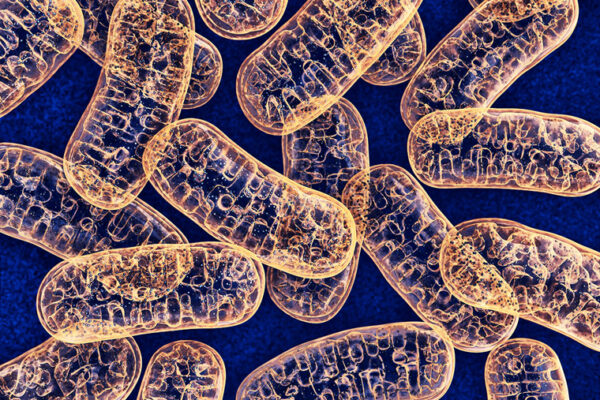Polina V. Lishko, a noted molecular biologist and entrepreneur, has been named a BJC Investigator at Washington University School of Medicine in St. Louis. Lishko, whose innovative investigations of molecular mechanisms of bioactive lipid signaling has advanced scientific understanding in fields as varied as reproductive biology, vision and neurodegeneration, joins the Department of Cell Biology & Physiology.
The BJC Investigator Program brings to the School of Medicine scientists who will have a transformational impact on research programs, bring innovative approaches to major biological questions, and whose discoveries stand to inform new ways of understanding disease and developing treatments.
Lishko is an associate professor of molecular and cellular biology at the University of California, Berkeley. Her appointment at Washington University begins Dec. 1.
The BJC Investigators Program is focused on basic science and was inspired by the Howard Hughes Medical Institute’s philosophy of investing in scientists with exceptional creative talent. The program aims to bring 10 highly regarded researchers to the School of Medicine and the life sciences ecosystem in St. Louis. Lishko is the seventh BJC Investigator named.
BJC Investigators are recommended by a search committee of leading scientists at the School of Medicine. Their charge is to select candidates who already have indelibly changed their fields, whose discoveries will result in new and fundamental shifts in scientific thinking, and whose laboratories have become hubs for even more work that can galvanize and advance the impact of the school’s preclinical departments.
“I am so pleased to announce that Dr. Polina Lishko has accepted our offer to join the School of Medicine,” said David H. Perlmutter, MD, executive vice chancellor for medical affairs, the George and Carol Bauer Dean, and the Spencer T. and Ann W. Olin Distinguished Professor. “Through her dedication to understanding basic biological mechanisms, Dr. Lishko has made breakthroughs and overturned established dogma within multiple fields. Her expertise and innovative approaches to investigating bioelectricity and regulation of ion channels has transformed scientific understanding of the physiology of the retina, fluid flow in the brain and fertility. Dr. Lishko’s ability to link detailed molecular mechanisms to disease processes and her broad scientific interests will set the stage for collaborations across the campus that could lead to translational advances in many fields.”
Lishko is best known for basic reproductive biology research that has advanced our understanding of male and female infertility and could lead to alternatives to hormonal contraceptives. Many contraceptives for women — such as birth control pills, patches and injections; vaginal rings; and some intrauterine devices — contain synthetic hormones that prevent pregnancy but cause unpleasant side effects such as weight gain, headaches and mood changes. Effective nonhormonal contraceptives could reduce the burden of birth control for women and perhaps also provide better contraceptive options for men.
Lishko has discovered a protein receptor on sperm cells that revs up sperm so they have the power to drill through the protective outer layer of a human egg and fertilize it, as well as several compounds that can interfere with this process. Separately, she and colleagues identified a drug that short-circuits the energy supply in sperm cells, leaving sperm short of the fuel needed to swim to the egg. These and other findings form the basis of promising experimental contraceptives for women and men.
In 2018, Lishko co-founded the startup company YourChoice Therapeutics. While she has since stepped away from the company, YourChoice Therapeutics continues to build on her research to develop temporary, nonhormonal contraceptives.
Lishko’s wide-ranging interests also extend to neurodegeneration and vision. In the field of neurodegeneration, she is studying whether the drop in sex hormones that occurs at menopause changes fluid flow and waste removal in the brain, and contributes to older women’s increased risk of Alzheimer’s disease. In vision, she is developing an eyedrop to prevent age-related macular degeneration, a leading cause of blindness in people over age 60, by encouraging normal function of supportive cells in the eye. Lishko has co-founded another startup company, BioTock, to move this translational research from bench to bedside.
“We are delighted that Dr. Lishko will be joining our department and bringing her expertise in biophysical and physiological investigations to enrich our research community,” said David W. Piston, the Edward Mallinckrodt Jr. Professor and head of the Department of Cell Biology & Physiology. “Beyond her research accomplishments, Dr. Lishko has an exceptional record as a mentor who has made a major impact through teaching and educational leadership positions. We welcome her to Washington University and look forward to collaborating with her.”
Lishko earned her doctorate in biophysics at the Bogomoletz Institute of Physiology of the National Academy of Sciences of Ukraine in Kyiv, Ukraine. After completing her degree, she undertook postdoctoral research at Harvard Medical School and the University of California, San Francisco, before joining the faculty at UC Berkeley in 2012. Among her numerous accolades, she was selected as a Sloan Foundation Fellow and a Pew Scholar in the Biomedical Sciences in 2015, and received a MacArthur “Genius Grant” in 2020.
Lishko’s husband, Yuriy Kirichok, will join the Department of Biochemistry & Molecular Biophysics at Washington University School of Medicine. He is a professor of physiology at the University of California, San Francisco. His pioneering work focuses on channels and transporters that move charged ions across the outer membrane of mitochondria — tiny organelles that generate power and serve other functions for cells — and how such channels and transporters affect mitochondrial function and contribute to conditions such as diabetes, obesity and neurodegenerative diseases.
Washington University School of Medicine’s 1,700 faculty physicians also are the medical staff of Barnes-Jewish and St. Louis Children’s hospitals. The School of Medicine is a leader in medical research, teaching and patient care, and currently is No. 4 in research funding from the National Institutes of Health (NIH). Through its affiliations with Barnes-Jewish and St. Louis Children’s hospitals, the School of Medicine is linked to BJC HealthCare.




Comments and respectful dialogue are encouraged, but content will be moderated. Please, no personal attacks, obscenity or profanity, selling of commercial products, or endorsements of political candidates or positions. We reserve the right to remove any inappropriate comments. We also cannot address individual medical concerns or provide medical advice in this forum.